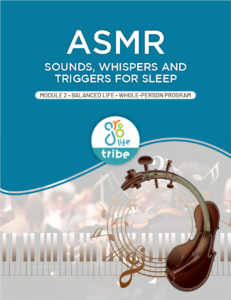MODULE 3
How Stress Affects the Body
Defining Mental Health
As with physical health, there are some mental “healthy basics” that will be beneficial to most people. These healthy basics include awareness, acceptance, and compassion. Another healthy basic is balancing mental rest with mental activity – giving your mind space to wander and refresh while offering plenty of engagement opportunities, like learning, socializing, or getting into a creative flow.
When many people think of mental health, they think of stress. In truth, stress is a key player in this pillar of whole-person health.
What Is Stress
Whether you realize it or not, what most people think of as stress starts as your body subconsciously reacting to something it perceives as “dangerous.” From an evolutionary standpoint, you’re hardwired to shift into the stress response when you sense danger. This is a result of the sympathetic nervous system being triggered to avoid things like lions, tigers, and bears. While this response can be lifesaving in the wilderness, it’s not very helpful in modern daily life.
Stress And Your Health

Sympathetic Nervous System
Your sympathetic nervous system is the “fight or flight” part of the autonomic nervous system. It helps the body prepare to respond to a perceived threat and inhibits any nonessential functioning. This system is triggered when you experience stress and is known as the stress response.
Parasympathetic Nervous System
Your parasympathetic nervous system is the “rest and digest” part of the autonomic nervous system. It relaxes the body and helps it focus on post-stress recovery and maintenance of regulatory functions, like digestion and immunity.

Stress and the Physical Systems
Stress is a natural part of life. However, if your body is constantly triggered by stressors, it can have serious health implications. It’s important to understand not only how stress affects the sympathetic nervous system, but also how it can negatively affect all systems in the physical body.





